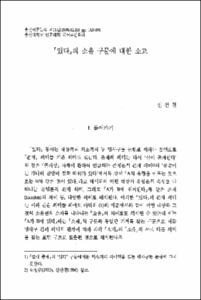1990년대 전문 환경운동조직의 특성
- Alternative Title
- The Professional Environmental Movement Organizations in Korea in the 1990s
- Abstract
- 이 글은 1990년대 한국의 전문환경운동조직을 경험적으로 분석하고 '제도화'라는 관점에서 그 특성을 살펴보는 데 목적이 있다. 전문 환경운동조직 가운데 대표적인 세 단체, 즉 환경운동연합, 녹색연합, 환경정의시민연대(경실련 환경개발센타)의 역사와 조직, 이념, 참여자, 재정, 주요활동을 분석했다. 전문 환경운동조직은 조직이 커졌고, 재정이 튼튼해졌으며, 사회적 영향력도 매우 커졌다. 이념은 1980년대의 민주화운동에 비해 현실주의적으로 변화했고 생태주의적 요소가 강해졌다. 이러한 전문 환경운동조직의 성장은 제도화 과정을 통해 이루어졌다. 제도화의 정도를 판별하기 위한 다섯 가지 요인 즉 조직의 일상화, 합법적 자원동원, 조직목표의 체제순응 정도, 인적 자원의 포섭, 다른 조직과의 연결망 등을 분석한 결과, 세 단체는 모두 제도화 과정을 밟아왔다. 이 가운데 경실련(환경개발센타)이 가장 제도화되었고, 다음으로 녹색연합, 환경운동연합의 순으로 제도화가 이루어진 것으로 분석되었다. 1990년대 전문 환경운동조직들은 ?┻된? 과정을 통해 얻은 사회적 권력을 바탕으로 제도 안팎의 저항을 조직하는 한국사회의 새로운 사회운동 모델을 창조했다.
This paper aims to analyze the environmental movement organizations during the 1990s period in South Korea, in terms of "institutionalization". We analyzed histories, organizations, ideology, participants, and fundings of the 3 major environmental movement oranizatiosn, Korean Federation for Environmental Movement(KFEM), Green Korea, and Environment and Development Center in Citizens 'Coalition for Environmental Justice(CCEJ). In the 1990s, the 3 organizations got greater members, were successful in fund raising, and became very influential in environmental politics. Radical ideology changed to realistic, modest and ecological. We found that the environmental movement organizations became influential in the process of "institutionalization". We analyzed the 5 factors measuring "institutionalization" that are routinization of organizations, legal resource mobilization, modest organization programme, co-optation, network with other organizations. We found that CCEJ was the most institutionalized and KFEM was less institutionalized. However, environmental movement organizations were not totally instituionalized. They made environmental issues on the social, political agenda and created new type of environmental politics of civil society in South Korea.
This paper aims to analyze the environmental movement organizations during the 1990s period in South Korea, in terms of "institutionalization". We analyzed histories, organizations, ideology, participants, and fundings of the 3 major environmental movement oranizatiosn, Korean Federation for Environmental Movement(KFEM), Green Korea, and Environment and Development Center in Citizens 'Coalition for Environmental Justice(CCEJ). In the 1990s, the 3 organizations got greater members, were successful in fund raising, and became very influential in environmental politics. Radical ideology changed to realistic, modest and ecological. We found that the environmental movement organizations became influential in the process of "institutionalization". We analyzed the 5 factors measuring "institutionalization" that are routinization of organizations, legal resource mobilization, modest organization programme, co-optation, network with other organizations. We found that CCEJ was the most institutionalized and KFEM was less institutionalized. However, environmental movement organizations were not totally instituionalized. They made environmental issues on the social, political agenda and created new type of environmental politics of civil society in South Korea.
- Issued Date
- 2000
- Type
- Research Laboratory
- Alternative Author(s)
- Ku, Do-wan
- Publisher
- 사회과학논집
- Language
- kor
- Rights
- 울산대학교 저작물은 저작권에 의해 보호받습니다.
- Citation Volume
- 10
- Citation Number
- 1
- Citation Start Page
- 363
- Citation End Page
- 384
- Appears in Collections:
- Research Laboratory > Journal of social science
- 파일 목록
-
-
Download
 000002024657.pdf
기타 데이터 / 879.23 kB / Adobe PDF
000002024657.pdf
기타 데이터 / 879.23 kB / Adobe PDF
-
Items in Repository are protected by copyright, with all rights reserved, unless otherwise indicated.